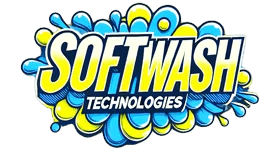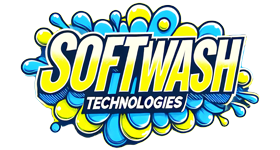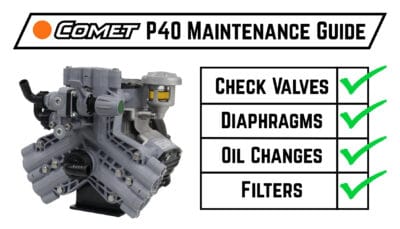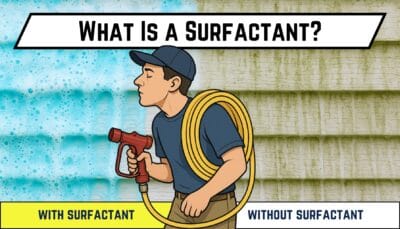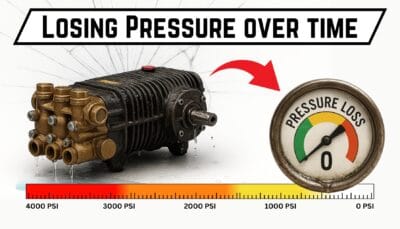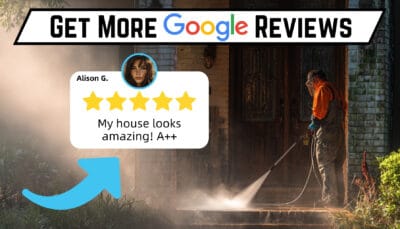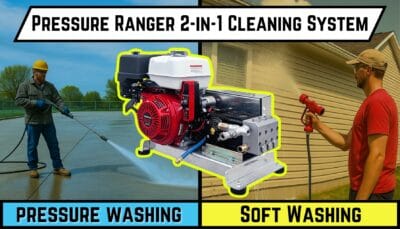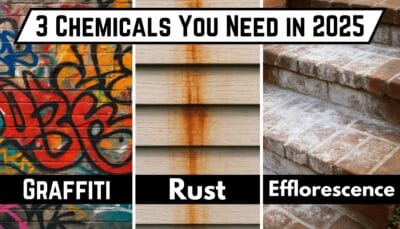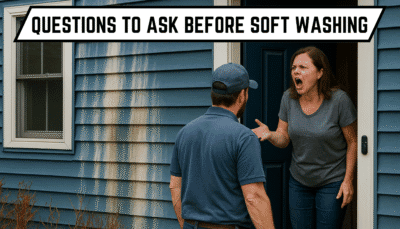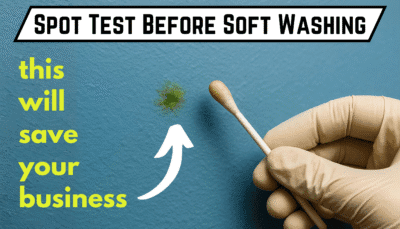Useful Chemicals for Cleaning Professionals
- Posted by: Collin Steele
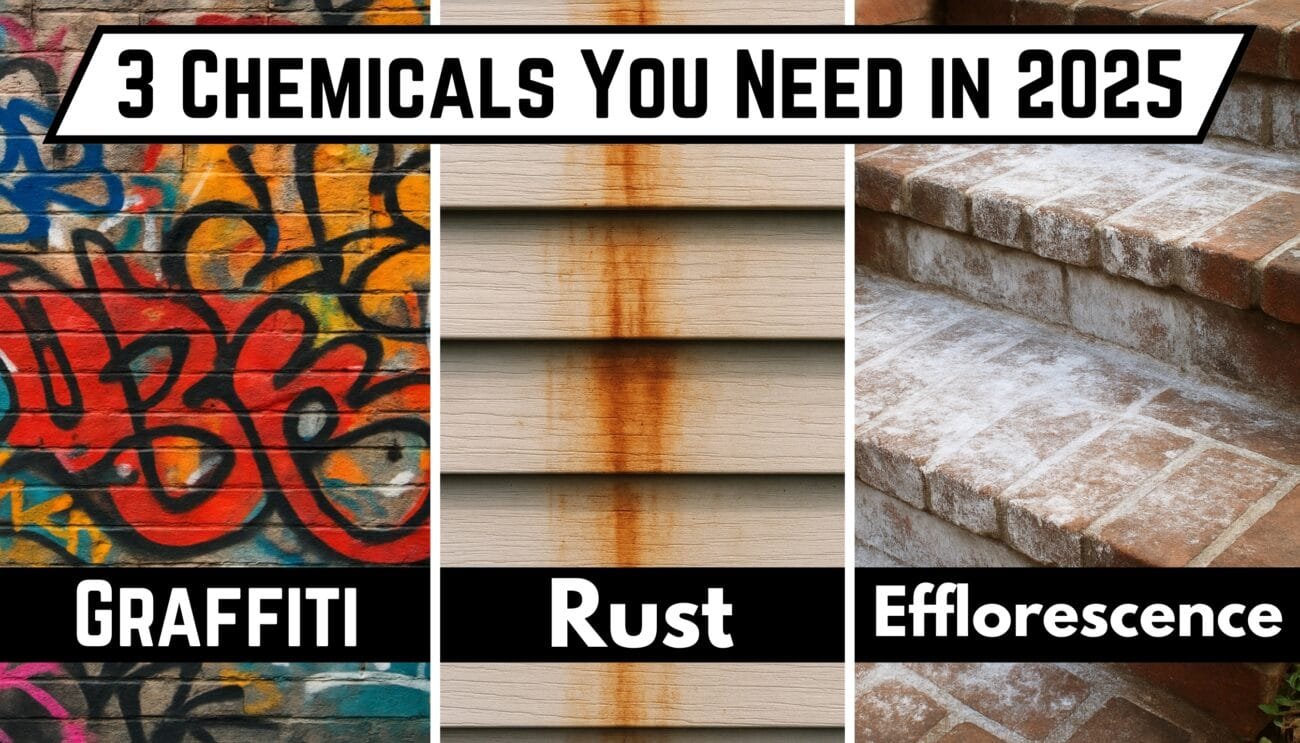
If you’ve been soft washing or pressure washing for a minute, you know bleach alone won’t fix everything. It’s great for organic build ups but there are some stubborn stains that just sit there and mock your SH. I’m talking about graffiti, rust, and efflorescence.
They require different kinds of cleaners made for those specific problems and that’s when you need alternative chemicals as your backup plan.
Here’s what pros are recommending when your soft wash mix doesn’t cut it.
Graffiti
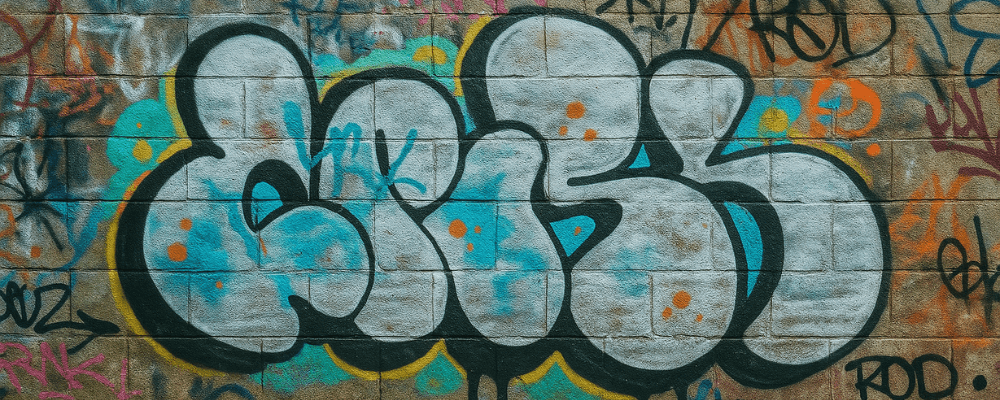
What you’re dealing with: Spray paint, markers, stickers, or thick layers of tagging baked into brick, concrete, stone, or metal. Some of it’s fresh and some of it’s been sitting for months, or years under the sun. Either way, bleach isn’t going to remove it.
Here are a few solid graffiti removers that you could choose from:
World’s Best Graffiti Remover
From the name alone, World’s Best, you can already guess this is one of the top graffiti remover brands out there. A lot of pros trust it, and for good reason.
Their most well-known product, the Bare Brick, Stone & Masonry Graffiti Remover is a gel made to clean vertical surfaces and it’s biodegradable, low odor, and easy to use. It clings well, breaks down spray paint fast, and rinses off without damaging the surface underneath.
If you head to their website, they also provide expert advice on how to use their products properly. Definitely worth a look if you want the best results.
Taginator
Taginator is another go-to name when it comes to graffiti removal, especially for rough and porous surfaces like brick, block, and concrete.
It’s strong enough to handle multiple layers of spray paint, including older tags that have been sitting a while. It works in both hot and cold weather, and it’s made to pull paint out from deep in the surface and not just clean the top.
Most pros like it because it works fast and doesn’t need a bunch of scrubbing.
Elephant Snot
Elephant Snot is a thick, heavy-duty gel that’s also made for removing graffiti from rough, porous surfaces like brick, concrete, stone, and grout. It’s designed to cling to vertical surfaces and stay in place while it works. It also soaks deep into the material and lifts the paint without damaging what’s underneath.
It works in hot or cold weather, also has a low odor and doesn’t dry out too fast while sitting on the surface. It’s reliable and does what it’s supposed to do.
Rust
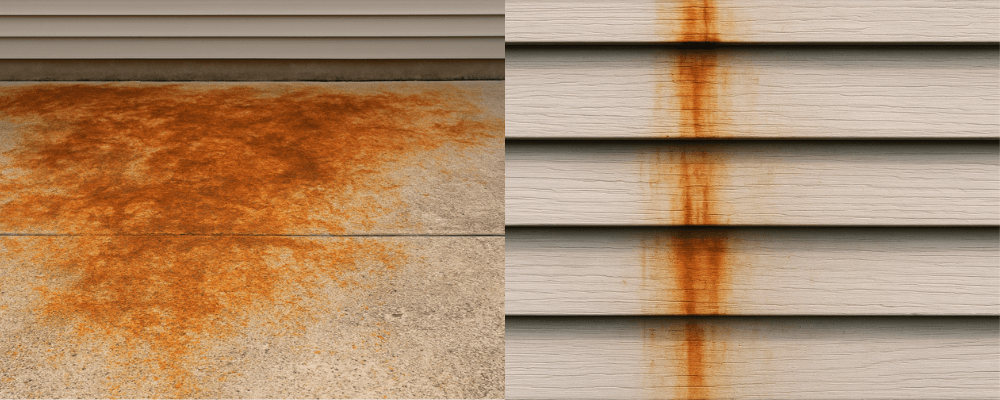
What you’re dealing with Orange or brown stains caused by metal furniture, irrigation systems, battery acid, or rusted tools sitting too long on concrete, siding, or pavers. These stains don’t come from organic growth, so bleach won’t do anything.
Rust stains need something that can break down the minerals causing the discoloration.
Here are a few chemicals professionals trust and use often:
F9 BARC
This is one of the most trusted rust removers in the industry, and you’ll hear it come up in a lot of discussions and recommendations. It’s made to clean rust stains, battery acid marks, and even fertilizer burns on surfaces like concrete, pavers, brick, stone, and siding. It actually breaks the stain down instead of just lightening it. It’s acid-based, so you’ll want to follow the label and use it carefully, but it’s strong and effective without messing up the surface.
OneRestore
OneRestore is a great option when you’re dealing with rust but also have other stains going on. It’s a multi-purpose cleaner that works on a mix of stuff like rust, mineral deposits, oxidation, and general grime. It’s safe to use on a bunch of different surfaces like brick, stone, concrete, and even glass and metal. And, it’s not just for rust, which makes it a good choice if you want one product that can handle more than one problem. It’s strong, but it’s also made to be safe on delicate surfaces when used correctly. But just like with anything strong, it’s best to follow the directions on the label so you don’t overdo it.
Oxalic Acid
Oxalic acid is a simple but effective option for removing rust, especially on concrete, wood, and even tools. It’s been used for years and is known for reacting with rust and making it water soluble so it can be washed away. A lot of people use it as a more affordable alternative to specialty rust removers.
It usually comes as a powder that you mix with water. It works well when used right, but it’s not as beginner-friendly as something like F9 or OneRestore. You have to be a bit more careful, especially with dwell time and rinsing, since it can lightly etch the surface if left too long.
Still, if you know what you’re doing and follow the right ratios, oxalic acid can be a solid backup to have in your setup.
Efflorescence
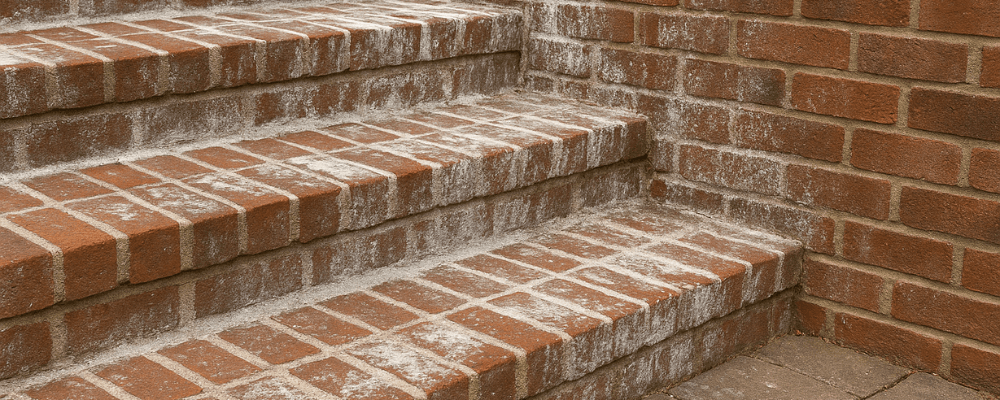
What you’re dealing with: The white, chalky-looking powder or crust that shows up on brick, pavers, concrete, block, or stone. What’s really happening is water is moving through the material, picking up salts inside and leaving them behind as it dries.
And because it’s a mineral issue, SH won’t do anything about it. You’ll need products that break down and remove those salts without damaging the surface.
Here are a few chemicals that pros use for this type of job:
F9 Efflo
F9 Efflo is made specifically for removing efflorescence and hard mineral deposits from concrete, brick, pavers, and stone. It’s one of the most recommended products for this type of staining.
It breaks down the salt buildup and clears up the surface without causing damage when used correctly. It’s strong but safer to use than some other harsh acids, and it doesn’t give off as many nasty fumes. Just make sure to read the label, because it’s acid-based and should be handled with care.
Muriatic Acid
Muriatic acid is kind of the old-school go-to for mineral stains, but it comes with risks. It’s strong and will absolutely remove efflorescence, but if you’re not careful, it can damage the surface or leave burn marks.
It’s cheap and easy to find, but most pros only use it as a last resort. If you go this route, you really need to know what you’re doing and follow safety steps to a T.
Know Your Chemicals
If it’s your first time using any of these chemicals, or you’re working on a surface you haven’t cleaned before, test a small spot first just to be safe. Some materials react differently, and it’s better to find out on a corner than on the whole wall.
If you’re not totally sure what you’re doing, don’t guess and just ask someone who’s used it before or check with a pro. Most guys in the industry are happy to share what works and what doesn’t. No shame in asking if it saves you from messing up the job. And the more you learn what works for different tasks, the easier your jobs get, and the better your results look. As a frontline service provider, it’s important to fill out your tool belt with the right chemicals for different applications.
Additional Resource:
On the other hand, if you’re just soft washing and dealing with organic stuff like algae, mold, or mildew, your SH mix is enough to get the job done. If you need a quick refresher on that, check this out:
Sodium Hypochlorite 101: Guide for Soft Washing Professionals
Disclaimer: Some of the links on this page are affiliate links. This means if you click through and make a purchase, we may earn a small commission at no extra cost to you :)
Latest Blog Posts
If you’ve been soft washing for a while, or even if you’re just starting out, you’ve probably heard the word
...